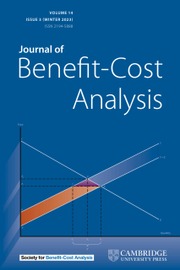Article contents
Is Existence Value Appropriate for Regulatory Benefit–Cost Analysis?
Published online by Cambridge University Press: 19 August 2020
Abstract
Since its introduction to the field of environmental and natural resource economics in the late 1960s, existence value has faced several critiques from economists, psychologists, and philosophers. Critics have taken aim at the notion’s conceptual ambiguity and lack of connection to observable behavior, its incompatibility with cognitive processes and its sensitivity to cognitive biases, and ethical shortcomings in applying existence values to environmental decisionmaking. Unlike some critiques of existence value that draw on cognitive and ethical frameworks for decisionmaking fundamentally at odds with stated preference methods and benefit–cost analysis (BCA), this paper takes as given the use and adequacy of both. It focuses on challenges to existence value per se, with respect to the ability of existence value estimates to contribute to benefit–cost analyses in a way that is consistent with qualities of BCA that its proponents value: the objectivity, commensurability, and moral salience of the values analyzed. In light of the challenges, inclusion of existence value in benefit–cost analyses is found to inevitably compromise the quality of the BCA with respect to each criterion.
- Type
- Article
- Information
- Copyright
- © The Author(s) 2020. Published by Cambridge University Press on behalf of the Society for Benefit-Cost Analysis
References
- 3
- Cited by


